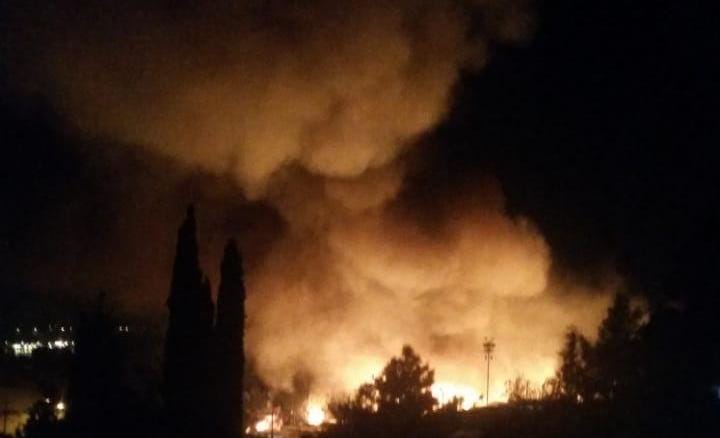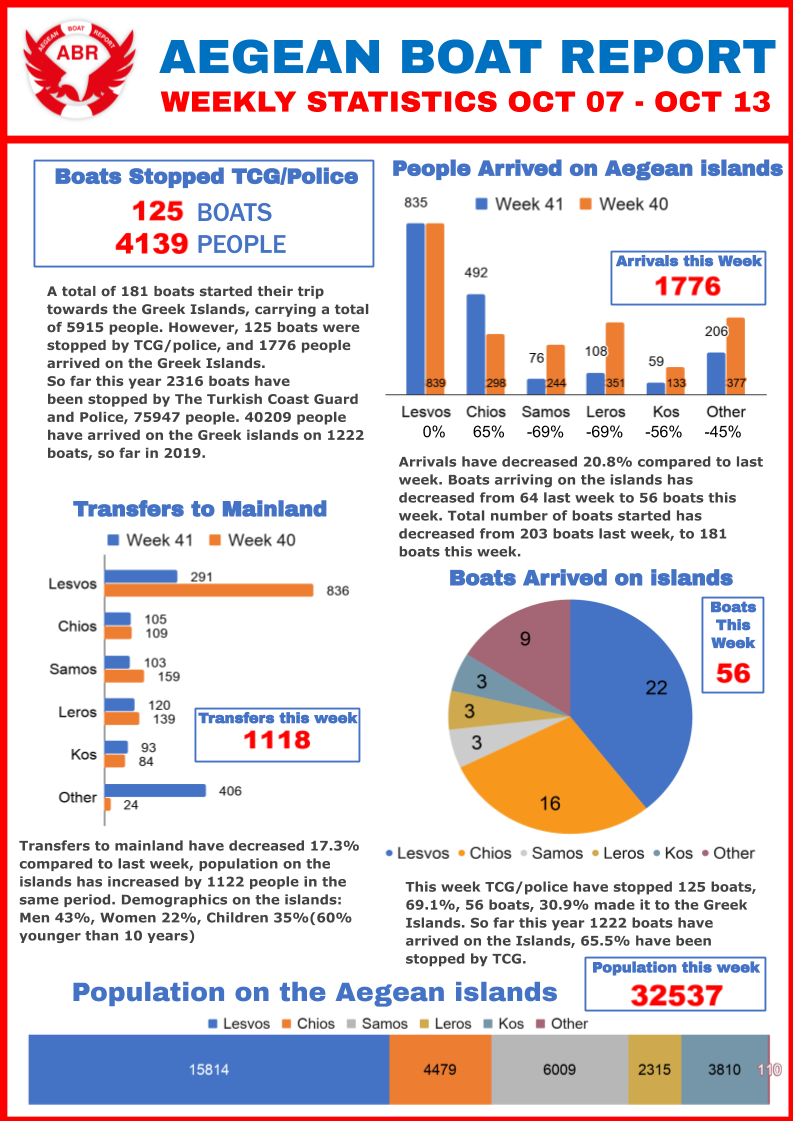As Predicted: Fire on Samos
A week is a long time in politics, especially when that politics is throwing gas bombs at your tent in a refugee camp.

On Monday morning, I wrote an email to The Guardian.
I thought they might be interested in the news that I shared with you last Friday: that the mayor of Samos seemed to be engineering the conditions for a catastrophe by putting unbearable pressure on the international organisations who are supporting refugees with food, shelter, clothes, education, entertainment and legal advice.
The final line of my email to the International Desk was:
While refugees on Lesvos have at least the sympathy and support of the island, on Samos the mayor is bent on pushing the situation to catastrophe: a riot, a fire - anything to make Athens and the EU take notice and do something.
That night, after an earlier dispute in the long queue for food, Afghan and Arab refugees started chucking gas bombs at each other. A huge fire ripped through the camp, turning tents and shelters into ash and making hundreds homeless - even more homeless, if it is possible, than they were before.
I couldn’t help but send what was admittedly a pretty snarky follow-up email to the heretofore silent International Desk:
Huge fire in Samos refugee 'jungle' tonight, hundreds evacuated and homeless. Maybe someone will take notice now!
Silence at the International Desk. Well, I guess no one died and something kind of similar happened a few weeks ago on Lesvos, so…
~
Correction: On Wednesday, The Guardian published this piece about the Turkish military ‘push’ into Syria, which contained the following brief mention of the fire on Samos:
On Monday a fire broke out at an overcrowded camp above Vathy, the port town of Samos, after inter-ethnic clashes.
‘Inter-ethnic clashes’. Really?
Factually not inaccurate, but this throw-away line does no justice to the events of the past two weeks.
Worse, this kind of journalism perpetuates the narrative that political decisions - international, national, local - have no effect on how human beings like you and I behave.
This ‘no effect’ narrative is easy. It’s easy to simply put the fire down to ‘inter-ethnic clashes’. Far too easy. Lazy you could almost say.
~
In October 1963, Bob Dylan wrote a song about a boxer who died as a result of injuries sustained during a bout earlier that year.
‘Who killed Davey Moore? Why and what’s the reason for?’ Dylan asks, as the referee, the angry crowd, his manager and the gambling man shrug their shoulders and pass the blame.
The last to pass the blame is ‘the boxing writer’, who points the finger squarely at Davey Moore’s opponent.
An easy narrative. It’s easy to simply pin the blame on a foreign boxer who ‘came here from Cuba's door’. Far too easy. Lazy you could almost say.
~
What is my narrative, then?
Who can blame refugees for fighting over food when the food always runs out before the whole of the two-hour queue has been served?
Who can even blame the mayor for cooking up the conditions for catastrophe, when nothing else has convinced the EU to put an end to this barbarism?
There is only one practical solution to this crisis: open the borders and let these people work.
In 2015, German Chancellor Angela Merkel saw that this was the only practical solution. She was not supported by the rest of the EU, and now has been compelled to fall in line with our other so-called ‘leaders’ and join them in refusing these people justice.
Which is all a bit of a shame because a recent report found that the million or so refugees who came to Germany in 2015 have been ‘integrating’ into society faster than expected: around 400,000 are already employed. This is better than past migrations, such as after the Balkan conflict in the early 90s, and particularly impressive given how difficult it is for Arabic speakers to learn German, let alone start a new life in the country.
But the ‘open borders’ narrative is not so easy. It makes it hard to answer the question I’m often asked: ‘What can we do?’
In short: we can give our time and/or money, either directly to the grassroots refugee organisations who are supporting people on the ground, like those here in Samos; or we can use our elevated European status to advocate for the only just political solution: open borders.
And now for something completely different…
FOILED. PLEASE SHARE.

Time is running out to catch Foiled. Episode 1 has already fallen off BBC Sounds :( (Yeah, I know - feel free to start a petition.)
You can still listen to the last three eps here. Do so.
We’re currently (right now) in the running for a fourth series so if you want to hear more from Bleach for the Stars! then please please please please please share the bejeezus out of it.
We need your help to get this Foiled in the ears of as many people as possible because, quite frankly, downloads is the only language that commissioners understand.
Thank you!
Sub-who? Substack!
As you may have noticed, I have changed newsletter provider. Mailchimp is dead; long live Substack!
Why?
Primarily because my friend and newsletter hero Documentally uses Substack. But also so that I can record and send you audio. In fact, my first audio update is coming to an inbox near you in just a few moments - I hope you like it!
Dollar-what?
Substack also gives you the option to pay for these words - confusingly, it’s called ‘Subscribing’ and you’ll see a button at the bottom of this email inviting you to do so.
DON’T PANIC.
This newsletter started free and will continue to be free. Even new subscribers (hi) can still get this newsletter for free. Nothing changes there.
The only difference is that paying for these weekly words is now an option for people who want to. Seems fair, no?
This is new for all of us, so please do let me know whether you like the changes, or what I can do to make this newsletter better. Thanks!
What else this week?
Away from Samos, I also took a short trip to Turkey and spent 32 hours in Izmir, talking to Syrian refugees and Greek volunteers and NGO workers.
But I think you’ve done quite enough reading for one week, so I’ll keep those stories for another newsletter.
PLUGS
In other news, Series 2 of Smashing Sundays kicked off with this episode featuring stand-up comedian April Richardson-Rossiter. Coming up next: Jon Holmes and Tom Davis.
I’m also absolutely thrilled that my friend Tim’s Youtube channel has gone viral (especially in the Netherlands). Over the past week, his subscriber count has gone from about 500 to more than 44,000. If you want to see what all the fuss is about, start with this episode about the Vennbahn - it’s had more than half a million views. And rightly so.
What’s next?
My time on Samos has almost come to an end. In the light of events over the past fortnight, it seems obnoxious to say that I’ve enjoyed my stay, but I have.
In spite of everything, there is a sense of community among the volunteers here: they are an energising group to be around.
Soon, I’ll be on the ferry back to Athens. This time next Friday, I’ll be on another ferry across the English Channel, the last leg of my four-day return journey. I’m a little anxious about what kind of politics I’ll find in the UK, but it surely cannot be any more toxic than here.
Much love,
dc:
CREDITS
David Charles wrote this newsletter. David is co-writer of BBC Radio sitcom Foiled, and also writes for The Bike Project, Forests News, Elevate and Thighs of Steel. Reply to this email, or read more at davidcharles.info. Thank you for subscribing!


